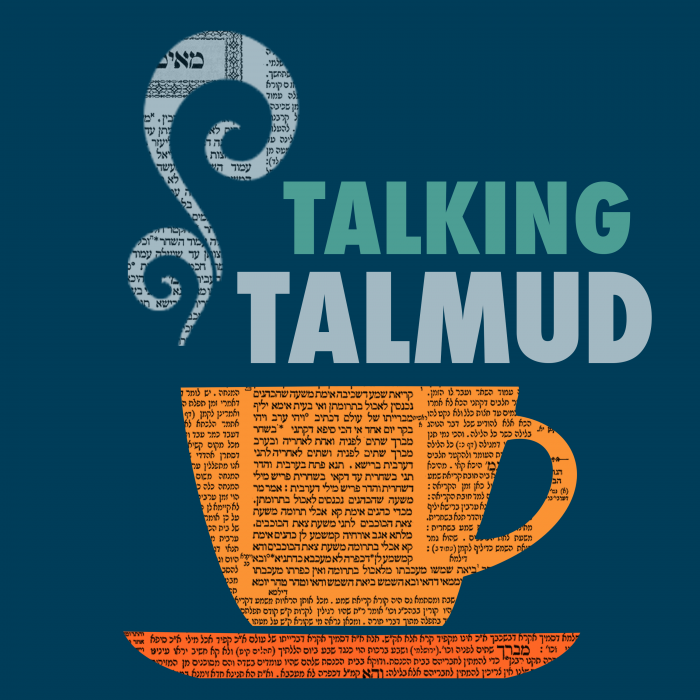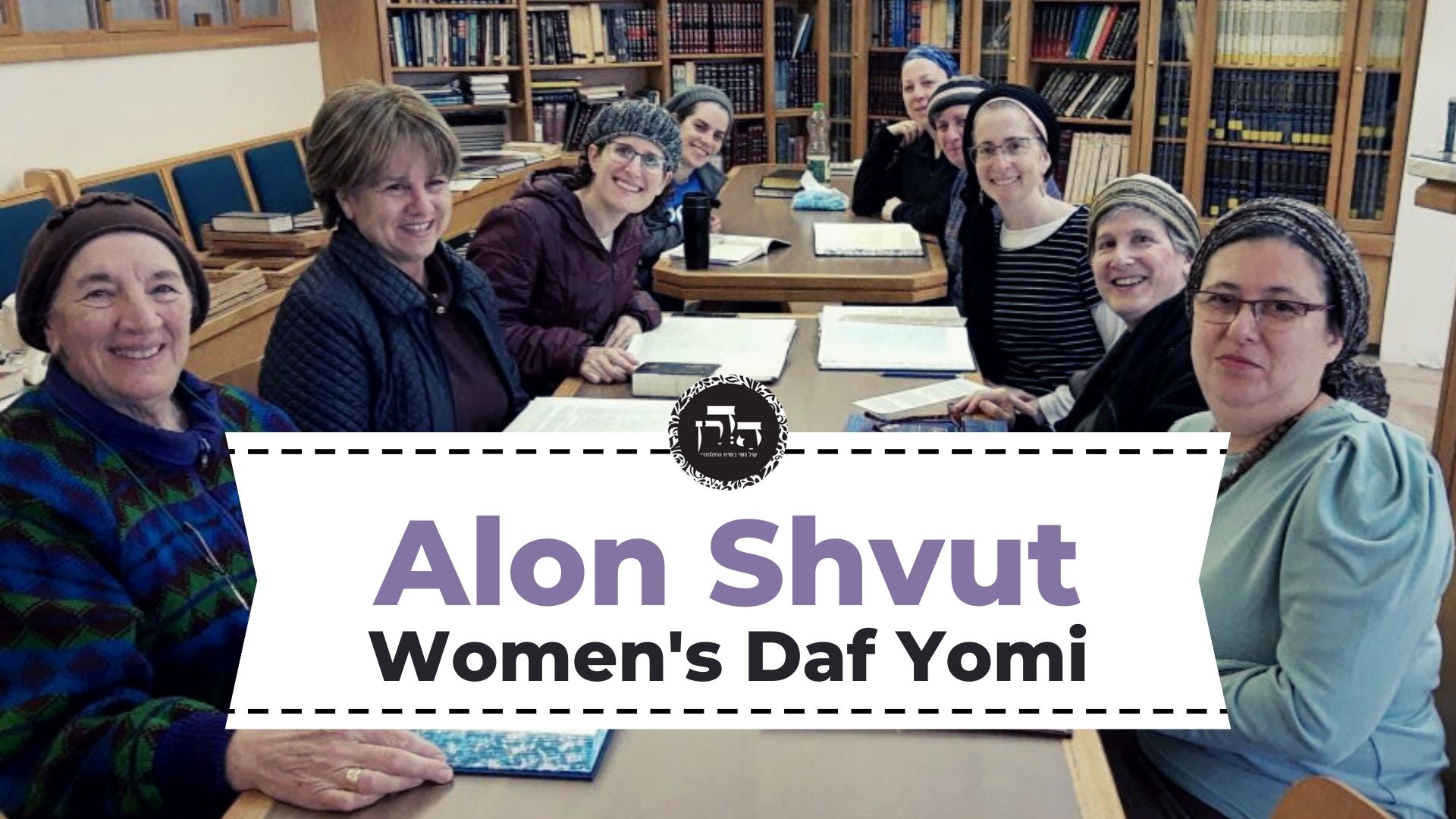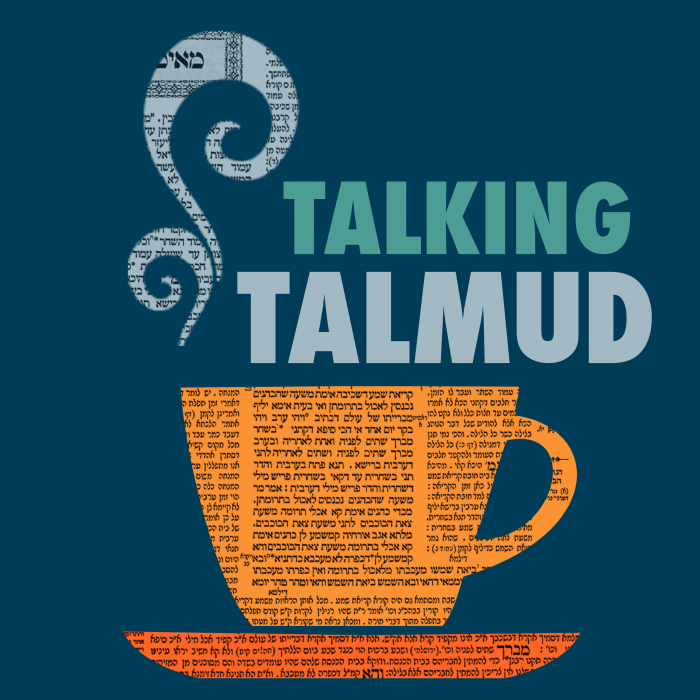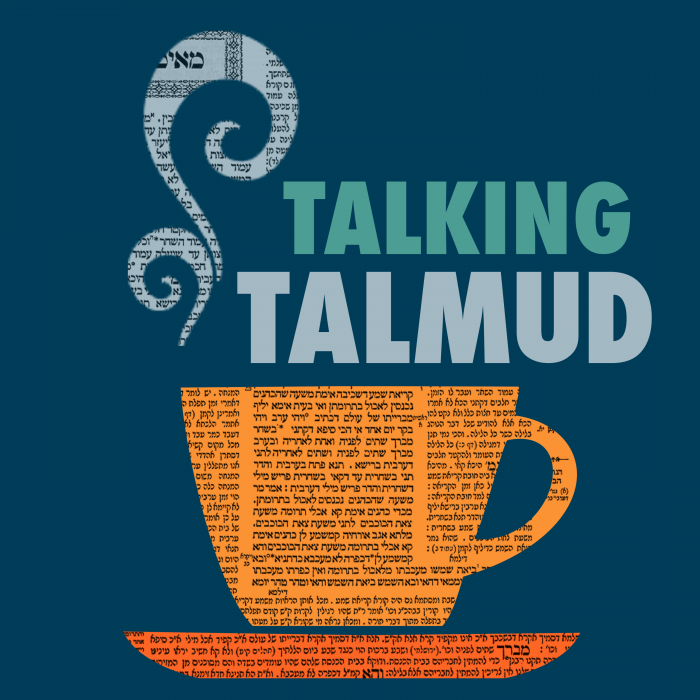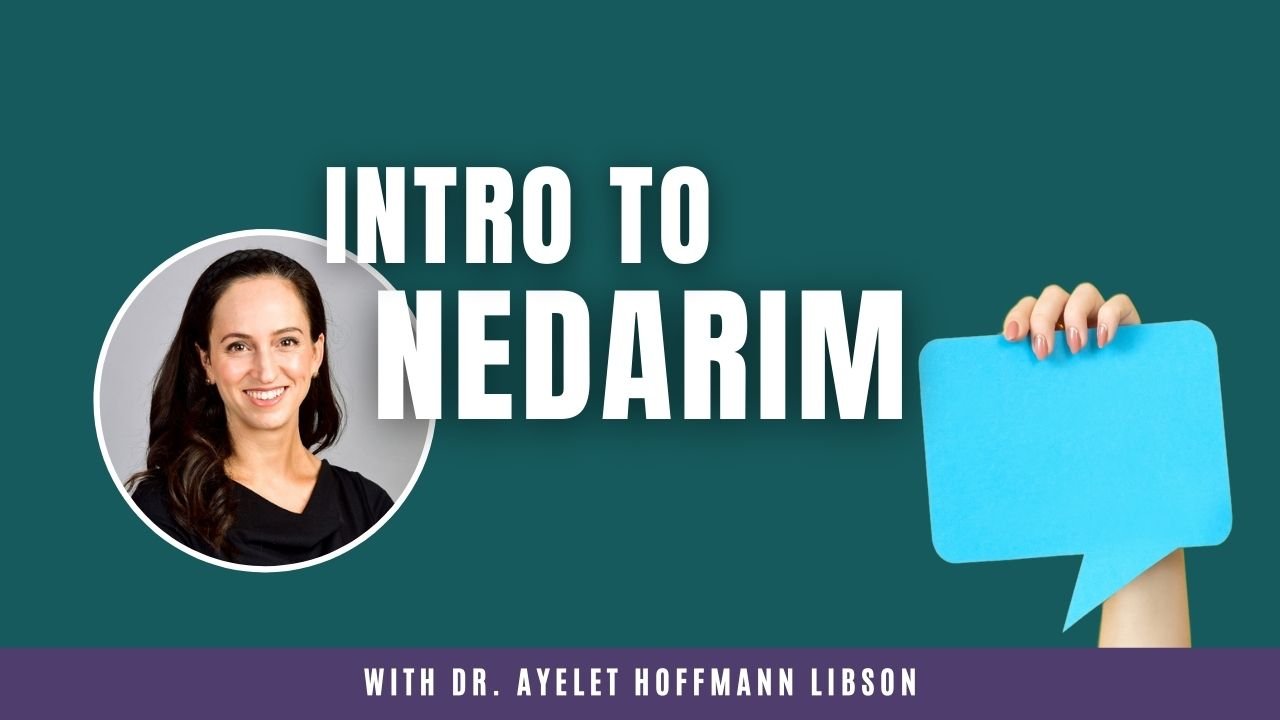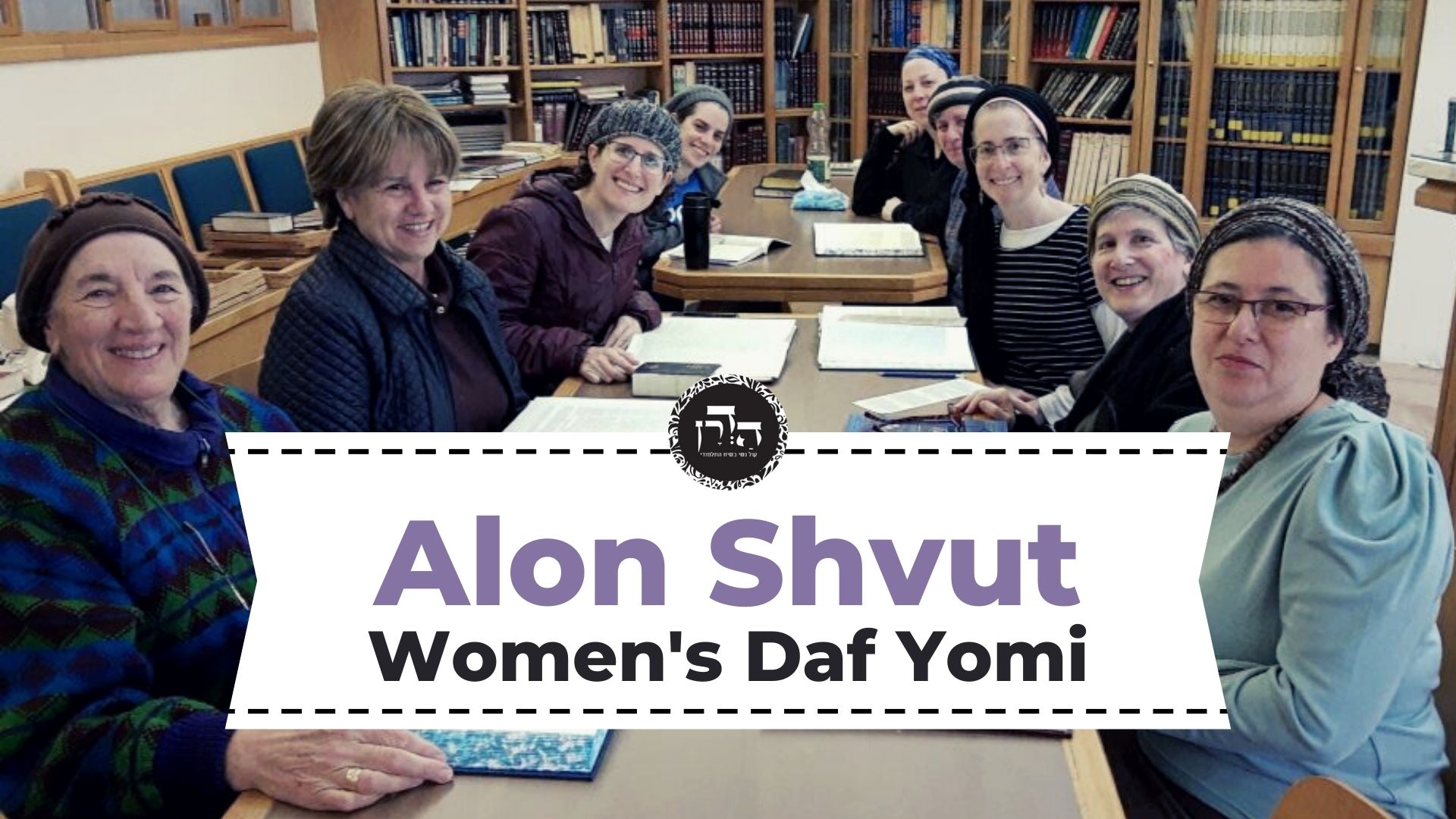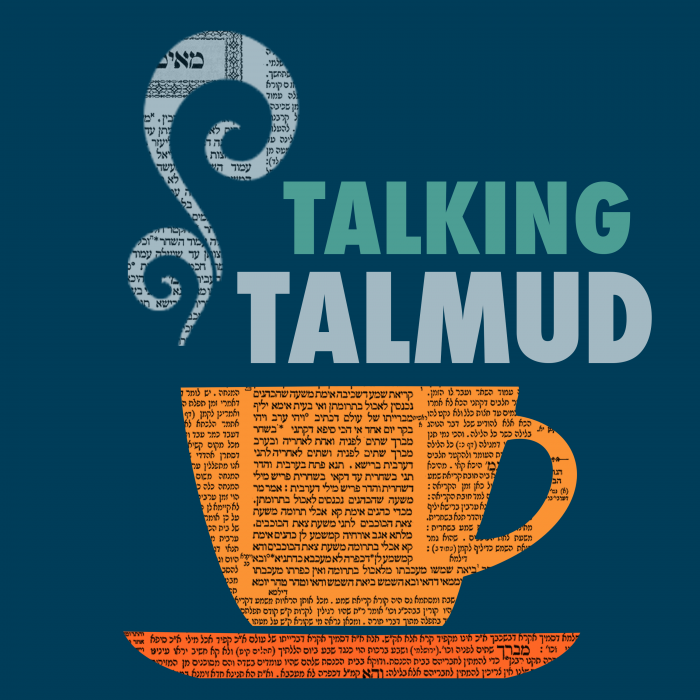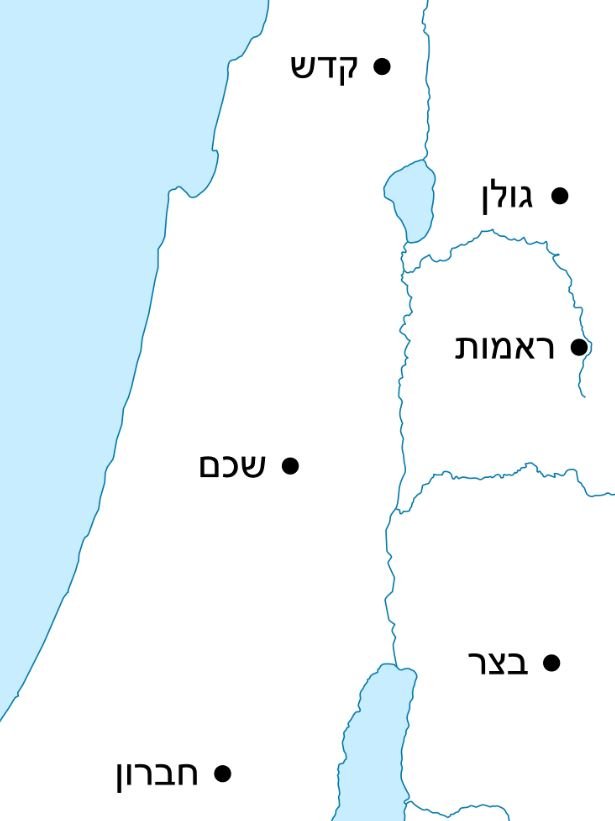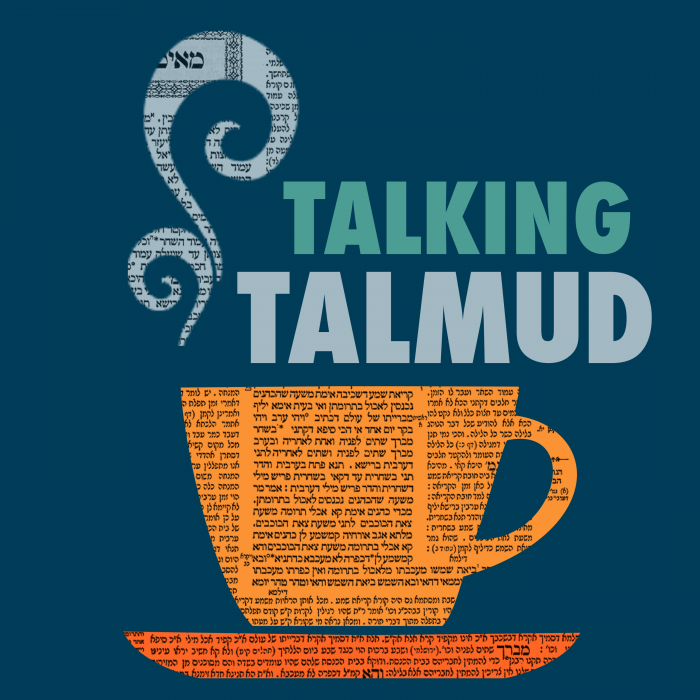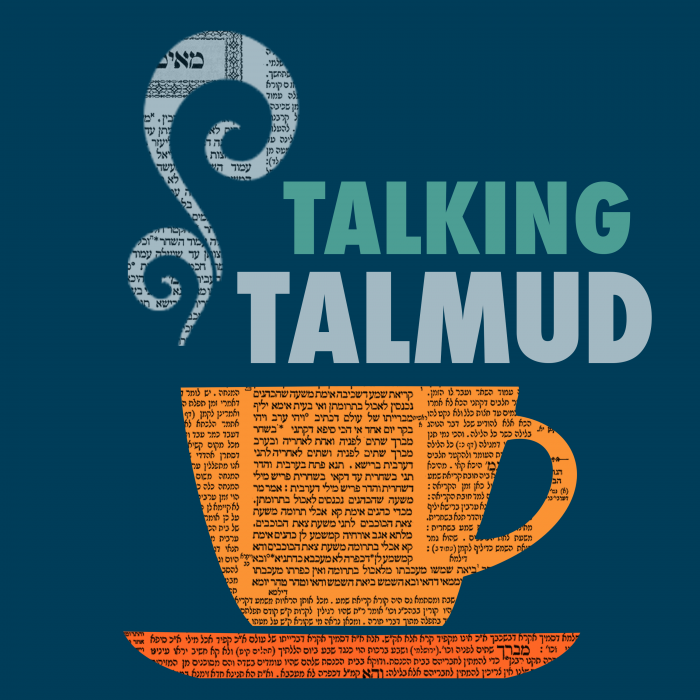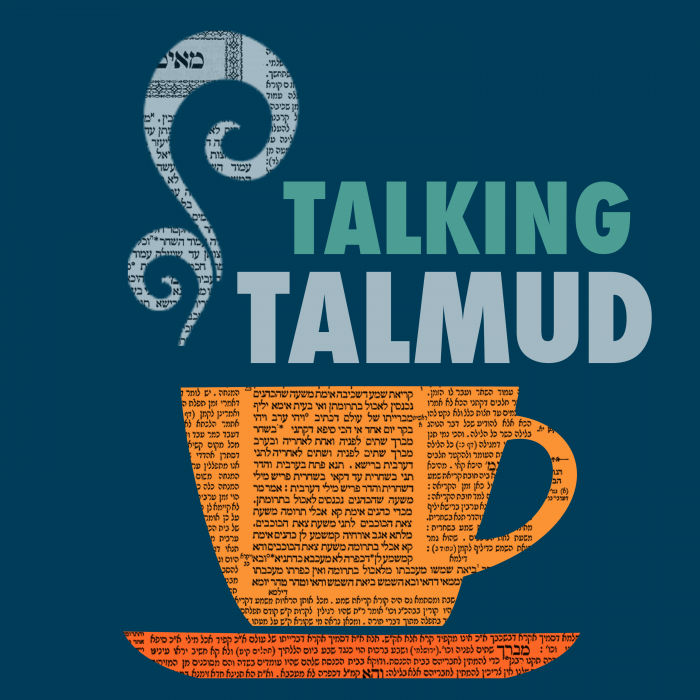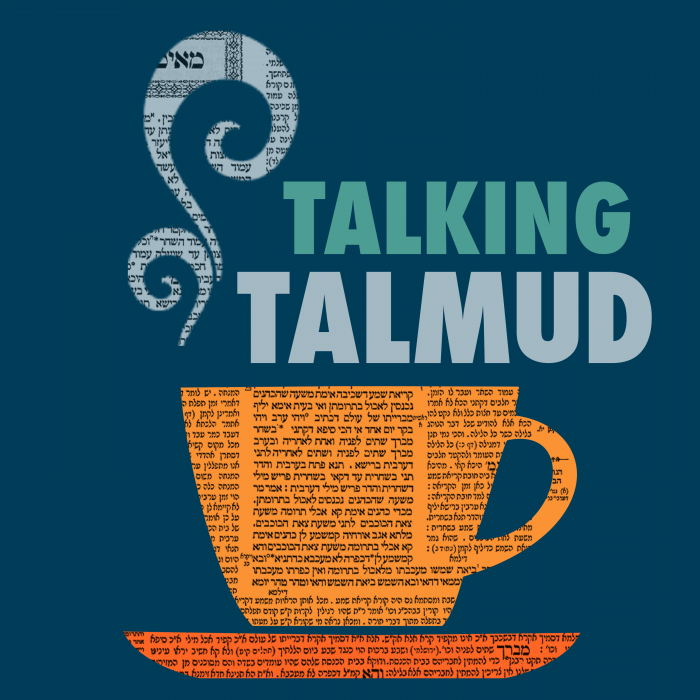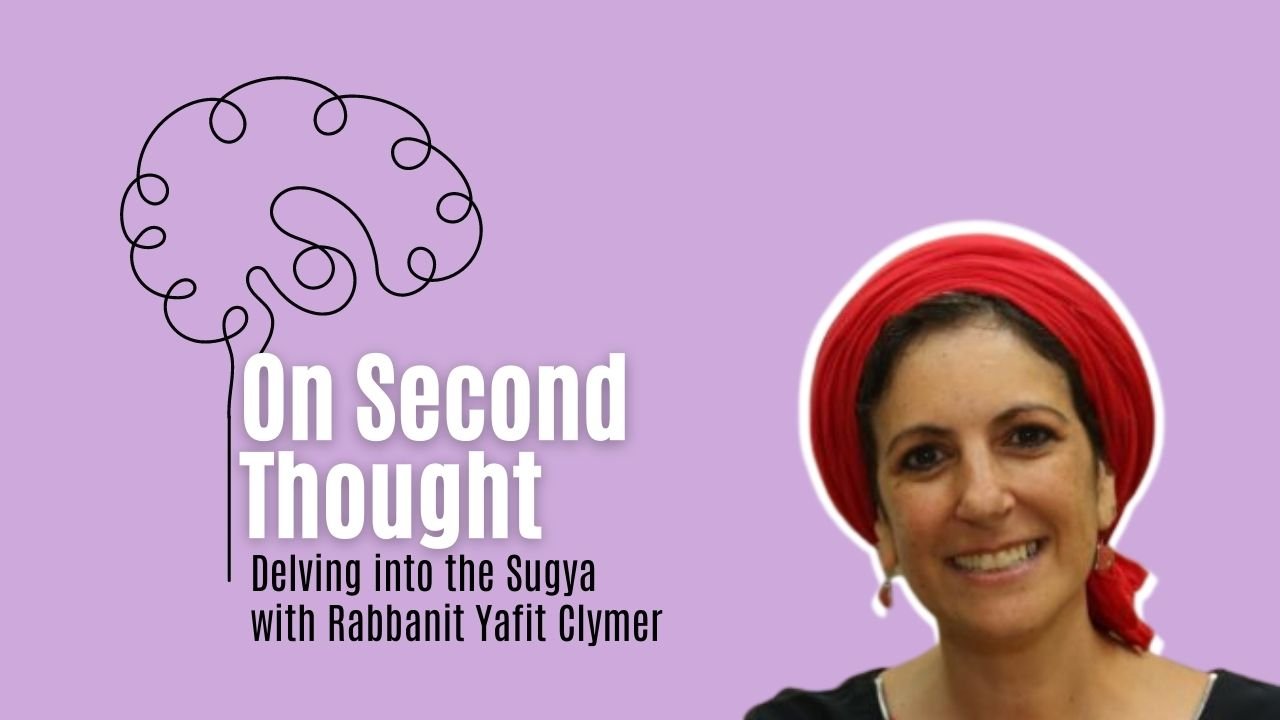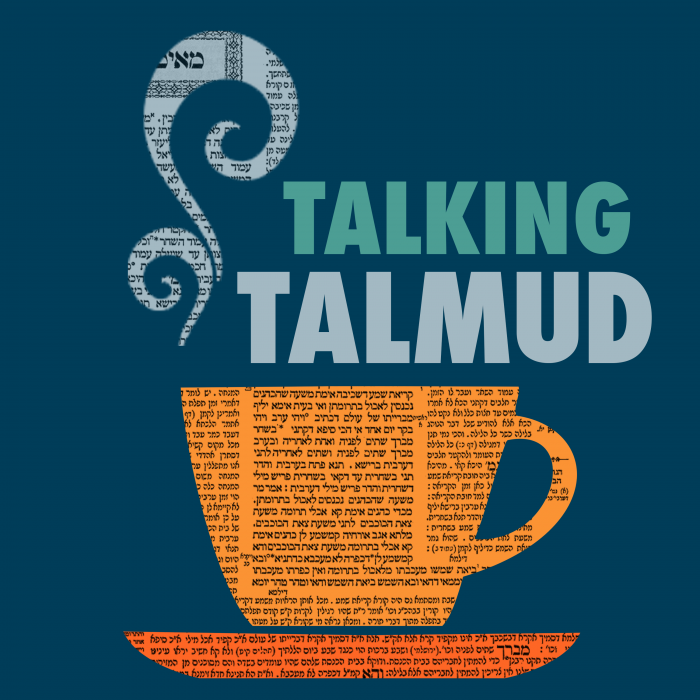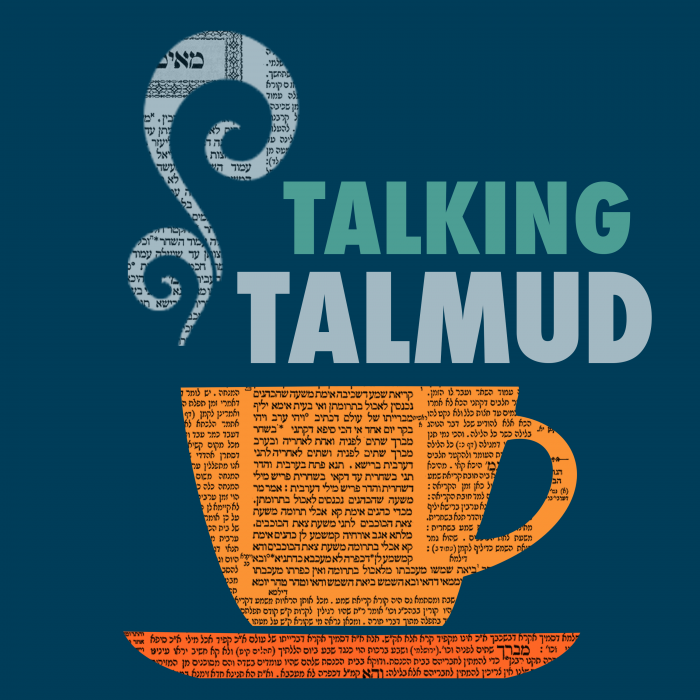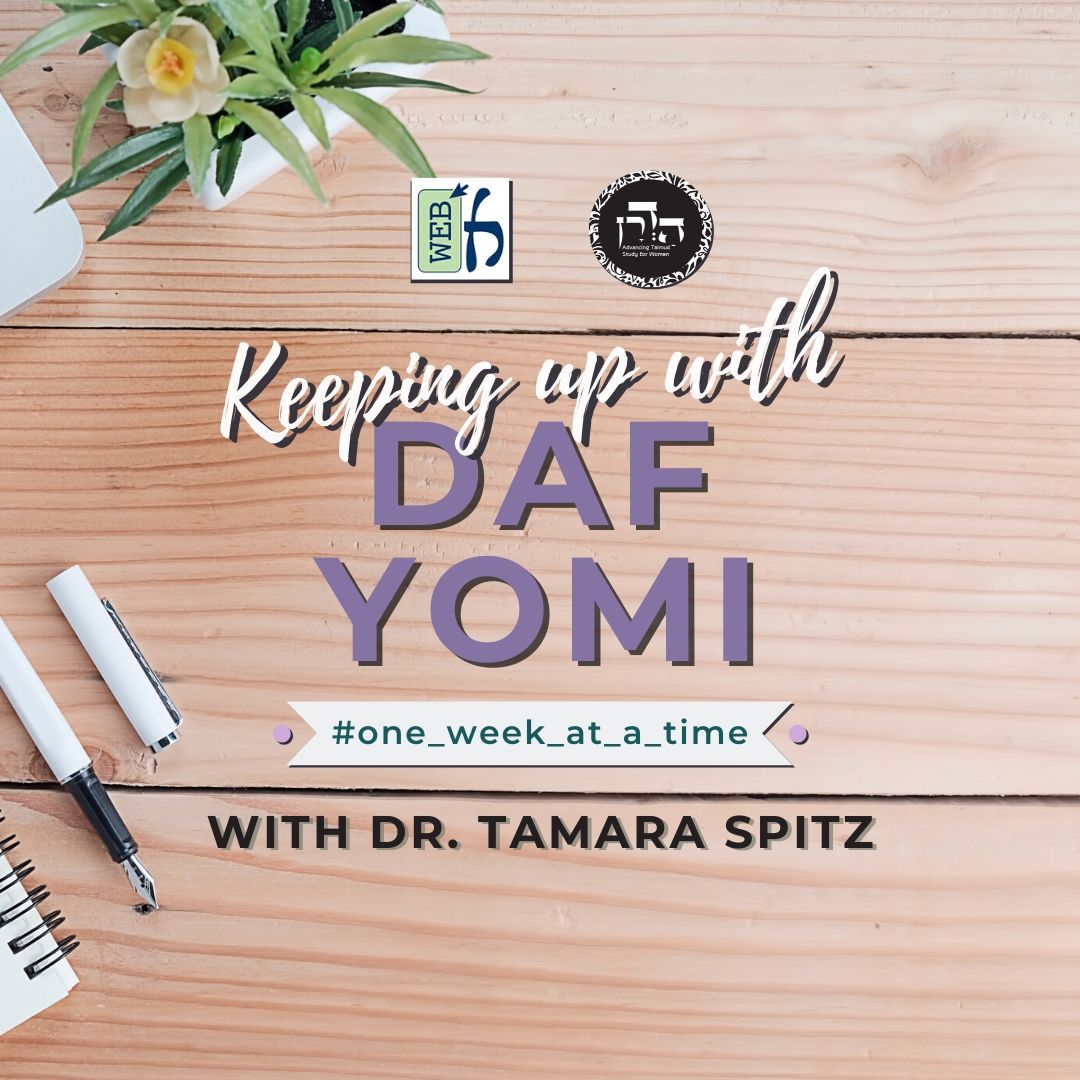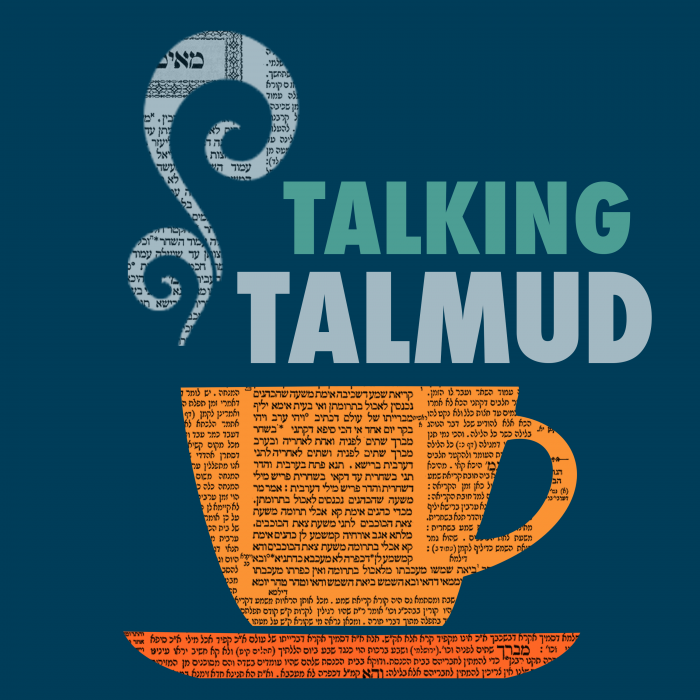There was a person in charge of checking that the guard weren’t sleeping and they would be punished if they slept. The gemara praises those who rebuke other, despite the difficulty involved in fulfilling this commandmant. The events of the early morning hours are discussed – the priests wake up and check that all the vessels are in place and then the preparations start for making the meal offering of the high priest (minchat chavitin) and the person chosen to take some ashes from the altar does his job. The process is described in detail.
This week’s learning is sponsored for the merit and safety of Haymanut (Emuna) Kasau, who was 9 years old when she disappeared from her home in Tzfat two years ago, on the 16th of Adar, 5784 (February 25, 2024), and whose whereabouts remain unknown.
This week’s learning is dedicated of the safety of our nation, the soldiers and citizens of Israel, and for the liberation of the Iranian people. May we soon see the realization of “ליהודים היתה אורה ושמחה וששון ויקר”.
Want to dedicate learning? Get started here:


Today’s daily daf tools:
This week’s learning is sponsored for the merit and safety of Haymanut (Emuna) Kasau, who was 9 years old when she disappeared from her home in Tzfat two years ago, on the 16th of Adar, 5784 (February 25, 2024), and whose whereabouts remain unknown.
This week’s learning is dedicated of the safety of our nation, the soldiers and citizens of Israel, and for the liberation of the Iranian people. May we soon see the realization of “ליהודים היתה אורה ושמחה וששון ויקר”.
Today’s daily daf tools:
Delve Deeper
Broaden your understanding of the topics on this daf with classes and podcasts from top women Talmud scholars.
New to Talmud?
Check out our resources designed to help you navigate a page of Talmud – and study at the pace, level and style that fits you.
The Hadran Women’s Tapestry
Meet the diverse women learning Gemara at Hadran and hear their stories.
Tamid 28
שָׁלוֹם עָלֶיךָ״! – נִיכָּר שֶׁהוּא יָשֵׁן, חוֹבְטוֹ בְּמַקְלוֹ. וּרְשׁוּת הָיְתָה לוֹ לִשְׂרוֹף אֶת כְּסוּתוֹ. וְהֵם אוֹמְרִים: מָה קוֹל בָּעֲזָרָה? קוֹל בֶּן לֵוִי לוֹקֶה וּבְגָדָיו נִשְׂרָפִין, שֶׁיָּשַׁן לוֹ עַל מִשְׁמָר. רַבִּי אֱלִיעֶזֶר בֶּן יַעֲקֹב אוֹמֵר: פַּעַם אַחַת מָצְאוּ אֶת אֲחִי אִמִּי יָשֵׁן, וְשָׂרְפוּ אֶת כְּסוּתוֹ.
Peace be upon you. If he would not reply, it was evident that he was sleeping. The man of the Temple Mount would therefore strike him with his staff, and he even had license to burn the watchman’s garment, in order to discipline him. And those overhearing the watchman being rebuked would say to one another: What is that sound in the Temple courtyard? It is the sound of a Levite being flogged and having his clothing burned, as he was caught sleeping during his watch. Rabbi Eliezer ben Ya’akov says: Once, the supervisors found my mother’s brother sleeping on his watch, and they burned his garment.
אָמַר רַבִּי חִיָּיא בַּר אַבָּא: כִּי מָטֵי רַבִּי יוֹחָנָן בְּהָא מַתְנִיתָא, אָמַר הָכִי: אַשְׁרֵיהֶם לָרִאשׁוֹנִים, שֶׁאֲפִילּוּ עַל אוֹנֶס שֵׁינָה עוֹשִׂין דִּין. שֶׁלֹּא עַל אוֹנֶס שֵׁינָה – עַל אַחַת כַּמָּה וְכַמָּה.
Rabbi Ḥiyya bar Abba says: When Rabbi Yoḥanan would reach this mishna in his studies, he would say this: The early generations were praiseworthy, as they meted out judgment even in the case of an offense caused by unavoidable sleep; and all the more so would they mete out judgment in the case of offenses that were not caused by unavoidable sleep.
תַּנְיָא, רַבִּי אוֹמֵר: אֵיזוֹ הִיא דֶּרֶךְ יְשָׁרָה שֶׁיָּבוֹר לוֹ הָאָדָם? יֶאֱהַב אֶת הַתּוֹכָחוֹת, שֶׁכׇּל זְמַן שֶׁתּוֹכָחוֹת בָּעוֹלָם – נַחַת רוּחַ בָּאָה לָעוֹלָם, טוֹבָה וּבְרָכָה בָּאִין לָעוֹלָם, וְרָעָה מִסְתַּלֶּקֶת מִן הָעוֹלָם, שֶׁנֶּאֱמַר: ״וְלַמּוֹכִיחִים יִנְעָם וַעֲלֵיהֶם תָּבֹא בִּרְכַּת טוֹב״. וְיֵשׁ אוֹמְרִים: יַחְזִיק בֶּאֱמוּנָה יְתֵירָה, שֶׁנֶּאֱמַר: ״עֵינַי בְּנֶאֶמְנֵי אֶרֶץ לָשֶׁבֶת עִמָּדִי וְגוֹ׳״.
It is taught in a baraita that Rabbi Yehuda HaNasi says: Which way of life is an upright path that a person should select for himself; what should be his guiding principle? One should love admonition, for as long as statements of admonition from the wise are heard in the world, pleasantness comes into the world, goodness and blessing come into the world, and evil departs from the world, as it is stated: “But to those who admonish shall be delight, and a good blessing shall come upon them” (Proverbs 24:25). And some say: The path one should select is to adhere to utmost faithfulness in business and interpersonal relations, as it is stated: “My eyes are upon the faithful of the land, that they may dwell with Me; he who walks in a way of integrity, he shall serve Me” (Psalms 101:6).
אָמַר רַבִּי שְׁמוּאֵל בַּר נַחְמָנִי אָמַר רַבִּי יוֹנָתָן: כׇּל הַמּוֹכִיחַ אֶת חֲבֵירוֹ לְשֵׁם שָׁמַיִם – זוֹכֶה לְחֶלְקוֹ שֶׁל הַקָּדוֹשׁ בָּרוּךְ הוּא, שֶׁנֶּאֱמַר: ״מוֹכִיחַ אָדָם אַחֲרַי״. וְלֹא עוֹד, אֶלָּא שֶׁמּוֹשְׁכִין עָלָיו חוּט שֶׁל חֶסֶד, שֶׁנֶּאֱמַר: ״חֵן יִמְצָא מִמַּחֲלִיק לָשׁוֹן״.
Rabbi Shmuel bar Naḥmani says that Rabbi Yonatan says: Anyone who rebukes another for the sake of Heaven is privileged to dwell in the portion of the Holy One, Blessed be He, as it is stated: “He that rebukes a man shall be behind Me” (Proverbs 28:23), i.e., with Me. Moreover, the heavenly court extends over him a cord of divine grace, as it is stated in the same verse: “He will find more favor than he who flatters with the tongue.”
מְצָאוֹ נָעוּל יוֹדֵעַ וְכוּ׳. מִי שֶׁהוּא רוֹצֶה לִתְרוֹם אֶת הַמִּזְבֵּחַ [וְכוּ׳]. הָא גוּפָא קַשְׁיָא, אָמְרַתְּ: מִי שֶׁהוּא רוֹצֶה לִתְרוֹם אֶת הַמִּזְבֵּחַ – מַשְׁכִּים וְטוֹבֵל עַד שֶׁלֹּא יָבֹא הַמְמוּנֶּה. אַלְמָא לָאו בְּפַיִיס תַּלְיָא מִילְּתָא. וַהֲדַר תָּנֵי: יָבֹא וִיפַיֵּיס, אַלְמָא בְּפַיִיס תַּלְיָא מִילְּתָא!
§ The mishna teaches (26a): If one found the bathroom door closed, he would know that there was a person there. The mishna then describes the commencement of the daily service in the Temple: Whoever wants to remove the ashes from the altar rises early and immerses himself before the appointed priest arrives. The Gemara objects: This mishna itself is difficult. You first said: Whoever wants to remove the ashes from the altar rises early and immerses himself before the appointed priest arrives. Evidently, the matter of determining who removes the ashes is not dependent upon a lottery; rather, whoever is ready first is entitled to remove the ashes. Otherwise, only the one selected would then immerse. But afterward, the mishna teaches that the appointed priest says to the other priests: Whoever immersed may come and participate in the lottery. Evidently, the matter is dependent upon a lottery. How can this contradiction be resolved?
אָמַר אַבָּיֵי: לָא קַשְׁיָא, כָּאן – קוֹדֶם תַּקָּנָה. כָּאן – לְאַחַר תַּקָּנָה.
Abaye said: This is not difficult. Here, when the mishna indicates that whoever is ready first is entitled to remove the ashes, it is describing the procedure before the Sages enacted the ordinance of a lottery. There, when the mishna states that the appointed priest conducts a lottery, it is describing the procedure after they enacted the ordinance.
דִּתְנַן: בָּרִאשׁוֹנָה כׇּל מִי שֶׁרוֹצֶה לִתְרוֹם אֶת הַמִּזְבֵּחַ, תּוֹרֵם. בִּזְמַן שֶׁהֵן מְרוּבִּין – רָצִין וְעוֹלִין בַּכֶּבֶשׁ, כׇּל הַקּוֹדֵם אֶת חֲבֵירוֹ בְּתוֹךְ אַרְבַּע אַמּוֹת – זָכָה. הָיוּ שְׁנַיִם שָׁוִין, הַמְמוּנֶּה אוֹמֵר לָהֶם: ״הַצְבִּיעוּ״.
As we learned in a mishna (Yoma 22a): Initially, the practice was as follows: Whoever wants to remove the ashes from the altar removes them. When there are many priests who wish to perform that task, the matter is determined by a race: The priests run and ascend on the ramp leading to the top of the altar. Any priest who precedes the other and reaches within four cubits of the top of the altar first is privileged to remove the ashes. If two priests were equal and neither preceded the other, the appointed priest says to them: Raise your fingers, and a lottery is performed.
וּמָה הֵן מוֹצִיאִין? אַחַת אוֹ שְׁתַּיִם. וְאֵין מוֹצִיאִין גּוּדָּל בַּמִּקְדָּשׁ.
And what fingers do they extend for the lottery? They may extend one or two fingers. The lottery was then conducted when the priests chose an arbitrary number, after which the appointee counted the raised fingers of the priests, who stood in a circle. He would go around the circle counting the fingers until he reached the chosen number, and the priest at whom the count ended won the lottery. And the priests do not extend a thumb in the Temple, as using the thumb might enable someone to manipulate the lottery. As the count progressed, a priest could calculate the result and surreptitiously extend his thumb and an additional finger. Since there is separation between the thumb and the forefinger it might appear as though they belonged to two different priests, and in this manner one could cause the lottery to conclude with a different priest.
מַעֲשֶׂה שְׁנַיִם הָיוּ שָׁוִין, רָצִין וְעוֹלִין בַּכֶּבֶשׁ, וְדָחַף אֶחָד מֵהֶם אֶת חֲבֵירוֹ, וְנִשְׁבְּרָה רַגְלוֹ. וּכְשֶׁרָאוּ בֵּית דִּין שֶׁהָיוּ בָּאִים לִידֵי סַכָּנָה, הִתְקִינוּ שֶׁלֹּא יְהוּ תּוֹרְמִין אֶת הַמִּזְבֵּחַ אֶלָּא בְּפַיִיס.
The mishna continues: That used to be the procedure, but an incident occurred in which two priests were equal as they were running and ascending on the ramp; and one of them shoved the other and he fell, and his leg was broken. And when the court saw that people were coming to potential danger, they instituted that the priests would remove the ashes from the altar only by means of a lottery.
רָבָא אָמַר: אִידֵּי וְאִידֵּי לְאַחַר תַּקָּנָה, וְהָכִי קָתָנֵי: מִי שֶׁהוּא רוֹצֶה לָבֹא וּלְפַיֵּיס – מַשְׁכִּים וְטוֹבֵל עַד שֶׁלֹּא יָבֹא הַמְמוּנֶּה.
Rava said: Both this clause, which states that to remove the ashes the priests must rise early and be prepared, and that clause, which states that a lottery is conducted, are describing the procedure after the ordinance. And this is what the mishna is teaching: Whoever wants to come and to participate in the lottery rises early and immerses before the appointed priest arrives to conduct the lottery among those priests who are ready to participate.
מַתְנִי׳ נָטַל אֶת הַמַּפְתֵּחַ וּפָתַח אֶת הַפִּשְׁפָּשׁ, וְנִכְנַס מִבֵּית הַמּוֹקֵד לָעֲזָרָה, וְנִכְנְסוּ הַכֹּהֲנִים אַחֲרָיו, וּשְׁתֵּי אֲבוּקוֹת שֶׁל אוֹר בְּיָדָם.
MISHNA: At some time near dawn the appointed priest took the key that was kept beneath a marble tablet set in the floor of the Chamber of the Hearth and opened with it the wicket [hapishpesh] in the gate of the Chamber of the Hearth. And he entered through the wicket from the Chamber of the Hearth to the Temple courtyard; and the priests of the patrilineal family entered after him, and two torches of fire were in their hands, to light the way.
נֶחְלְקוּ לִשְׁתֵּי כִיתּוֹת, אֵלּוּ מְהַלְּכִין בָּאַכְסַדְרָה דֶּרֶךְ מִזְרָח, וְאֵלּוּ מְהַלְּכִין בָּאַכְסַדְרָה דֶּרֶךְ מַעֲרָב. הָיוּ בּוֹדְקִין וְהוֹלְכִים עַד שֶׁמַּגִּיעִים לִמְקוֹם עוֹשֵׂה חֲבִיתִּים. הִגִּיעוּ – אֵלּוּ וָאֵלּוּ אָמְרוּ: ״שָׁלוֹם, הַכֹּל שָׁלוֹם״. הֶעֱמִידוּ עוֹשֵׂה חֲבִיתִּים לַעֲשׂוֹת חֲבִיתִּים.
The priests divided into two groups; these priests would walk along the portico that surrounded the Temple courtyard, starting in the direction of east, and those priests would walk along the portico starting in the direction of west.The priests would ensure that all the service vessels were in place, ready for use in the daily service. Both groups would continue inspecting the vessels until they reached the place where the Chamber of the Preparer of the High Priest’s daily Griddle-Cake Offering was located. When they reached that place, these priests and those priests said to each other: It is well; all is well, and all the vessels are in place. They then set the preparer of the griddle-cake offering to prepare the griddle-cake offering.
מִי שֶׁזָּכָה לִתְרוֹם אֶת הַמִּזְבֵּחַ, הוּא יִתְרוֹם. וְהֵם אוֹמְרִים: הֱוֵי זָהִיר שֶׁלֹּא תִּגַּע בַּכְּלִי עַד שֶׁתְּקַדֵּשׁ יָדֶיךָ וְרַגְלֶיךָ מִן הַכִּיּוֹר. וַהֲרֵי הַמַּחְתָּה נְתוּנָה בַּמִּקְצוֹעַ בֵּין הַכֶּבֶשׁ לַמִּזְבֵּחַ, בְּמַעֲרָבוֹ שֶׁל כֶּבֶשׁ.
The priest who won the lottery to remove the ashes from the altar shall then remove the ashes. And the other priests say to him: Be careful that you do not touch the vessel with which you perform the rite until you sanctify your hands and your feet from the Basin, as a priest may not perform any service in the Temple before sanctifying his hands and feet. The priests would continue their reminders: The coal pan with which the ashes are removed is placed in the corner between the ramp and the altar, on the western side of the ramp.
אֵין אָדָם נִכְנָס עִמּוֹ. וְלֹא נֵר בְּיָדוֹ, אֶלָּא מְהַלֵּךְ לְאוֹר הַמַּעֲרָכָה. לֹא הָיוּ רוֹאִין אוֹתוֹ,
No person would enter with the priest who was removing the ashes, as it was permitted to enter the area between the Entrance Hall of the Sanctuary and the altar only when performing the Temple service. And there was no lamp in his hand when he went to fetch the coal pan. Rather, he would walk by the light of the arrangement of wood on the altar, upon which the portions of the offerings sacrificed the previous day were burned during the night. The other priests would not see him, as the altar hid him from their sight,
וְלֹא הָיוּ שׁוֹמְעִין אֶת קוֹלוֹ, עַד שֶׁהָיוּ שׁוֹמְעִין קוֹל הָעֵץ שֶׁעָשָׂה בֶּן קָטִין מוּכְנִי לַכִּיּוֹר. וְהֵן אוֹמְרִים: הִגִּיעַ עֵת! קִידֵּשׁ יָדָיו וְרַגְלָיו מִן הַכִּיּוֹר, נָטַל מַחְתַּת הַכֶּסֶף וְעָלָה לְרֹאשׁ הַמִּזְבֵּחַ.
nor could they hear the sound of his steps. They were therefore unaware of his progress until they heard the sound of the wood that ben Katin crafted into a mechanism [mukhani] of pulleys that was used to sink the Basin into flowing water during the night, so that its water would not be disqualified by remaining overnight. When the priests heard the sound of the pulleys raising the Basin from the water, they said to each other: The time for sanctifying hands and feet has come. The priest sanctified his hands and his feet with water from the Basin after he raised it. He then took the silver coal pan from the corner between the ramp and the altar, and ascended to the top of the altar.
פִּינָּה אֶת הַגֶּחָלִים הֵילָךְ, חוֹתֶה אֶת הַמְאוּכָּלוֹת הַפְּנִימִיּוֹת. יָרַד הִגִּיעַ לָרִצְפָּה, הָפַךְ פָּנָיו לַצָּפוֹן, הוֹלֵךְ בְּמִזְרָחוֹ שֶׁל כֶּבֶשׁ כְּעֶשֶׂר אַמּוֹת. צָבַר אֶת הַגֶּחָלִים עַל גַּבֵּי הָרִצְפָּה רָחוֹק מִן הַכֶּבֶשׁ שְׁלֹשָׁה טְפָחִים, מָקוֹם שֶׁנּוֹתְנִים מוּרְאַת הָעוֹף, וְדִישּׁוּן מִזְבֵּחַ הַפְּנִימִי, וְדִישּׁוּן הַמְּנוֹרָה.
The priest cleared the upper layer of coals to this side and to that side and scooped into the coal pan the inner coals that were completely consumed. He then descended the ramp. When he reached the floor, in the southeast of the Temple courtyard, he turned his face toward the north. He would walk along the east side of the ramp toward the south side of the altar, walking a distance of about ten cubits from the bottom of the ramp, which was twenty cubits from the altar. He then heaped the coals upon the floor in a location three handbreadths distant from the ramp, in the place where the priests would place the crop of the bird burnt offering, the ashes removed from the inner, golden altar, and the ashes removed from the Candelabrum.
גְּמָ׳ וּמִי הֲווֹ אַכְסַדְרָאוֹת בָּעֲזָרָה? וְהָא תַּנְיָא, רַבִּי אֱלִיעֶזֶר בֶּן יַעֲקֹב אוֹמֵר: מִנַּיִן שֶׁאֵין עוֹשִׂין אַכְסַדְרָאוֹת בָּעֲזָרָה – תַּלְמוּד לוֹמַר: ״לֹא תִטַּע לְךָ אֲשֵׁרָה כָּל עֵץ אֵצֶל מִזְבַּח ה׳ אֱלֹהֶיךָ״,
GEMARA: The mishna teaches that the priests would walk along the portico surrounding the Temple courtyard. Since porticoes were usually made of wood, the Gemara asks: And were there porticoes in the courtyard? But isn’t it taught in a baraita that Rabbi Eliezer ben Ya’akov says: From where is it derived that one may not build wooden porticoes in the Temple courtyard? The verse states: “You shall not plant for yourself an ashera of any kind of tree beside the altar of the Lord your God” (Deuteronomy 16:21).
הָכִי קָאָמַר: ״לֹא תִטַּע לְךָ אֲשֵׁרָה״, ״לֹא תִטַּע לְךָ כׇּל עֵץ אֵצֶל מִזְבַּח ה׳ אֱלֹהֶיךָ״! אָמַר רַב חִסְדָּא: בְּאַכְסַדְרָאוֹת שֶׁל בִּנְיָן.
The Gemara explains that this is what the verse is saying: You shall not plant for yourself an ashera, i.e., a tree used as part of idolatrous rites. Moreover, you shall not plant or otherwise place for yourself any kind of tree or wood beside the altar of the Lord your God. Rav Ḥisda says: The mishna is referring to porticoes made of building materials, i.e., stone, whereas the prohibition of erecting porticoes in the Temple courtyard applies only to porticoes of wood.
הָיוּ בּוֹדְקִין וְהוֹלְכִין כּוּ׳. לְמֵימְרָא דַּחֲבִיתִּין הֲווֹ קְדִימִי?
§ The mishna teaches: Both groups would continue inspecting the vessels until they reached the place where the Chamber of the Preparer of the Griddle-Cake Offering was located. They would then set the preparer of the Griddle-Cake Offering to prepare the griddle-cake offering. The Gemara asks: Is this to say that the griddle-cake offering was sacrificed before the other rites of the Temple service were performed?
וְהַתַּנְיָא: מִנַּיִן שֶׁאֵין דָּבָר קוֹדֵם לְתָמִיד שֶׁל שַׁחַר – תַּלְמוּד לוֹמַר: ״וְעָרַךְ עָלֶיהָ הָעֹלָה״, וְאָמַר רַבָּה: ״הָעֹלָה״, עוֹלָה רִאשׁוֹנָה! אָמַר רַב יְהוּדָה: לְהָחֵם חַמִּין לִרְבִיכָה.
But isn’t it taught in a baraita: From where is it derived that there is nothing that is sacrificed on the altar prior to the daily morning offering? The verse states: “And the fire on the altar shall be kept burning on it, it shall not be extinguished; and the priest shall kindle wood upon it every morning, and he shall prepare the burnt offering upon it and shall cause the fats of the peace offerings to go up in smoke upon it” (Leviticus 6:5). And Rabba says that the term: The burnt offering, with the definite article, indicates that the burnt offering is important and is the first offering sacrificed each day. Rav Yehuda says: The griddle-cake offering was not burned on the altar at that early hour. Rather, it was necessary to set the preparers of the griddle-cake offering to heat hot water for preparing the parboiled griddle cakes.
הֲדַרַן עֲלָךְ בִּשְׁלֹשָׁה מְקוֹמוֹת
מַתְנִי׳ רָאוּהוּ אֶחָיו שֶׁיָּרַד, וְהֵם רָצִים וּבָאִים. מִהֲרוּ וְקִדְּשׁוּ יְדֵיהֶם וְרַגְלֵיהֶם מִן הַכִּיּוֹר, נָטְלוּ אֶת הַמַּגְרֵפוֹת וְאֶת הַצִּינּוֹרוֹת וְעָלוּ לְרֹאשׁ הַמִּזְבֵּחַ.
MISHNA: The previous mishna described the performance of the removal of the ashes by the priest who was selected to perform this task. This mishna continues: The brethren of the priest who removed the ashes, i.e., the other members of the patrilineal family, saw that he had descended from the altar with the coal pan, and they would run and come to the Basin. They made haste and sanctified their hands and their feet with the water in the Basin, and then they took the shovels and the forks and ascended with them to the top of the altar. The shovels were for shoveling the ashes to the center of the altar, while the forks were required to remove from the altar those limbs that had not been consumed.
הָאֵבָרִים וְהַפְּדָרִים שֶׁלֹּא נִתְעַכְּלוּ מִבָּעֶרֶב – סוֹלְקִין אוֹתָן עַל צִדֵּי הַמִּזְבֵּחַ, אִם אֵין צְדָדִים מַחְזִיקִין – סוֹדְרִים אוֹתָם בַּסּוֹבֵב עַל הַכֶּבֶשׁ.
With regard to the limbs of burnt offerings and the fats of other offerings that had not been consumed and burned to ashes during the time from the previous evening, the priests would clear them to the sides of the altar. If the remaining limbs and fats were so abundant that the sides of the altar were unable to hold them, the priests would arrange them on the ramp, opposite the surrounding ledge of the altar.
הֵחֵלּוּ מַעֲלִין בָּאֵפֶר עַל גַּב תַּפּוּחַ. תַּפּוּחַ הָיָה בְּאֶמְצַע הַמִּזְבֵּחַ, פְּעָמִים שֶׁהָיוּ עָלָיו כִּשְׁלֹשׁ מֵאוֹת כּוֹר. וּבָרְגָלִים לֹא הָיוּ מְדַשְּׁנִין אוֹתוֹ, מִפְּנֵי שֶׁהוּא נוֹי לַמִּזְבֵּחַ. וּמִיָּמָיו
The priests then began raising the ashes onto the circular heap upon which the ashes were piled. The circular heap was in the middle of the altar. Sometimes there was as much as three hundred kor of ashes upon it. When the heap of ashes became excessively large, the priests would remove the ashes and pour them outside the city. But during the Festivals they would not remove the ashes from the altar, as the ashes were considered an adornment to the altar, since they were a sign of the great number of offerings that were sacrificed on it. In all the days of the altar, even when there was an abundance of ashes upon it,


